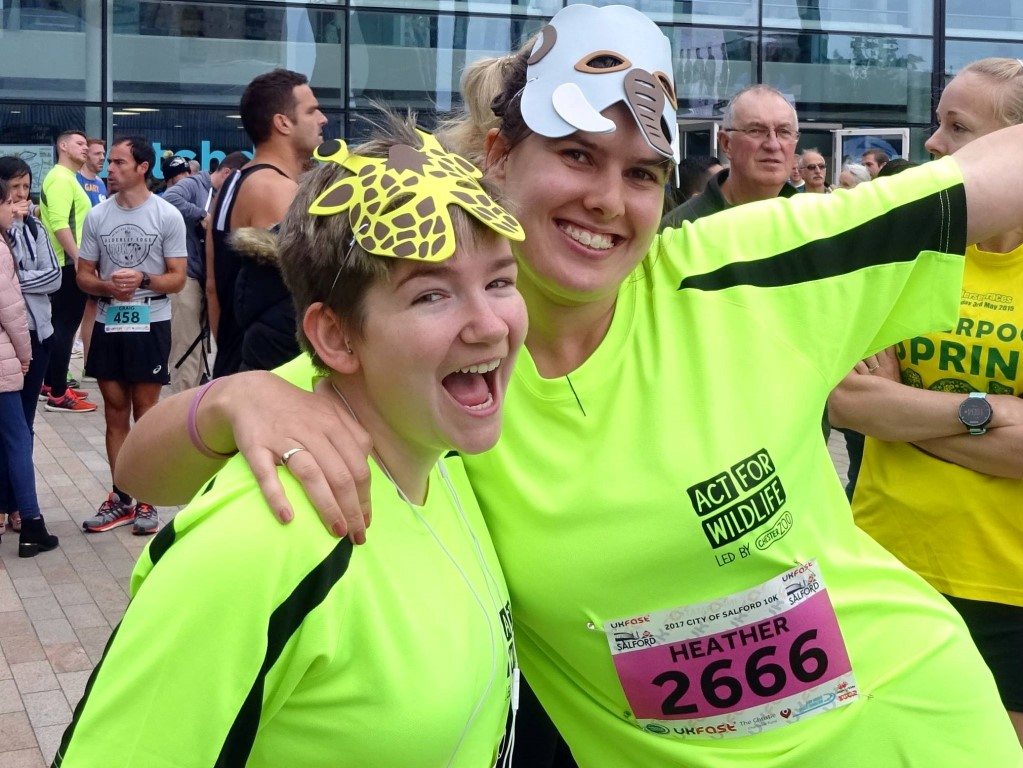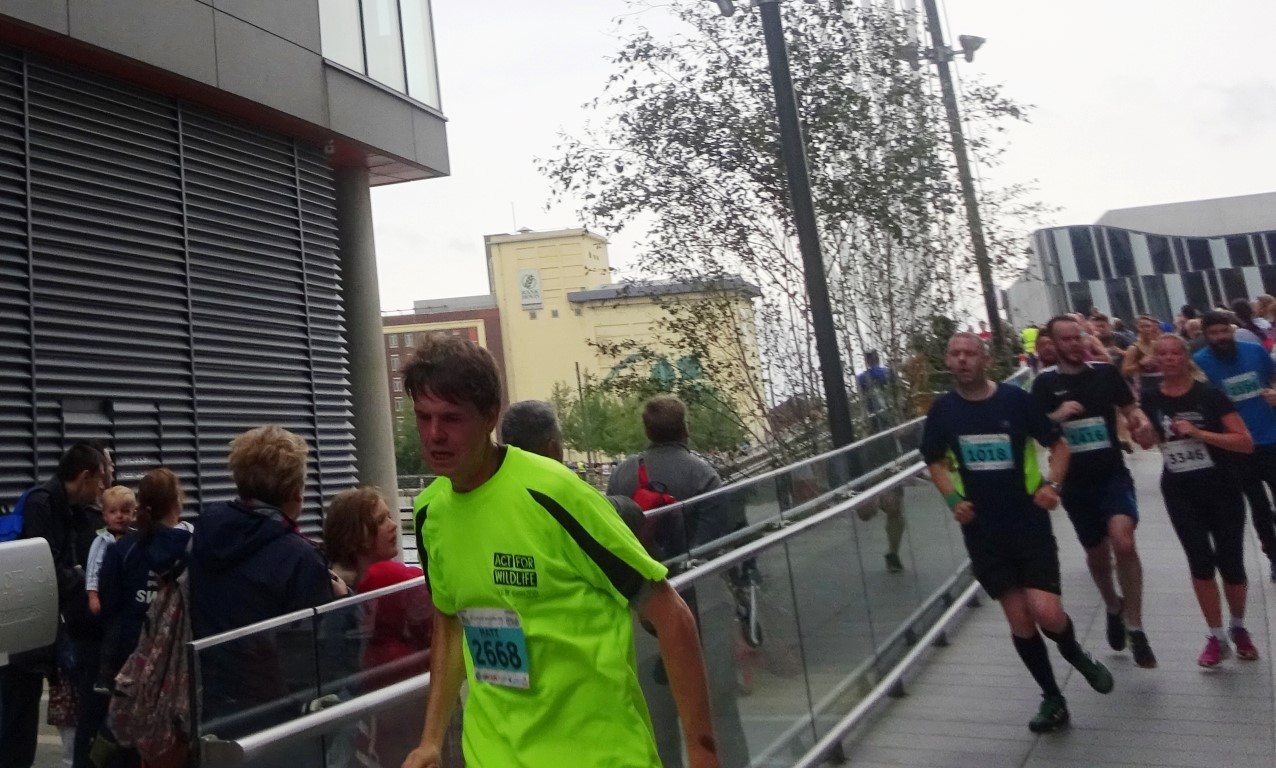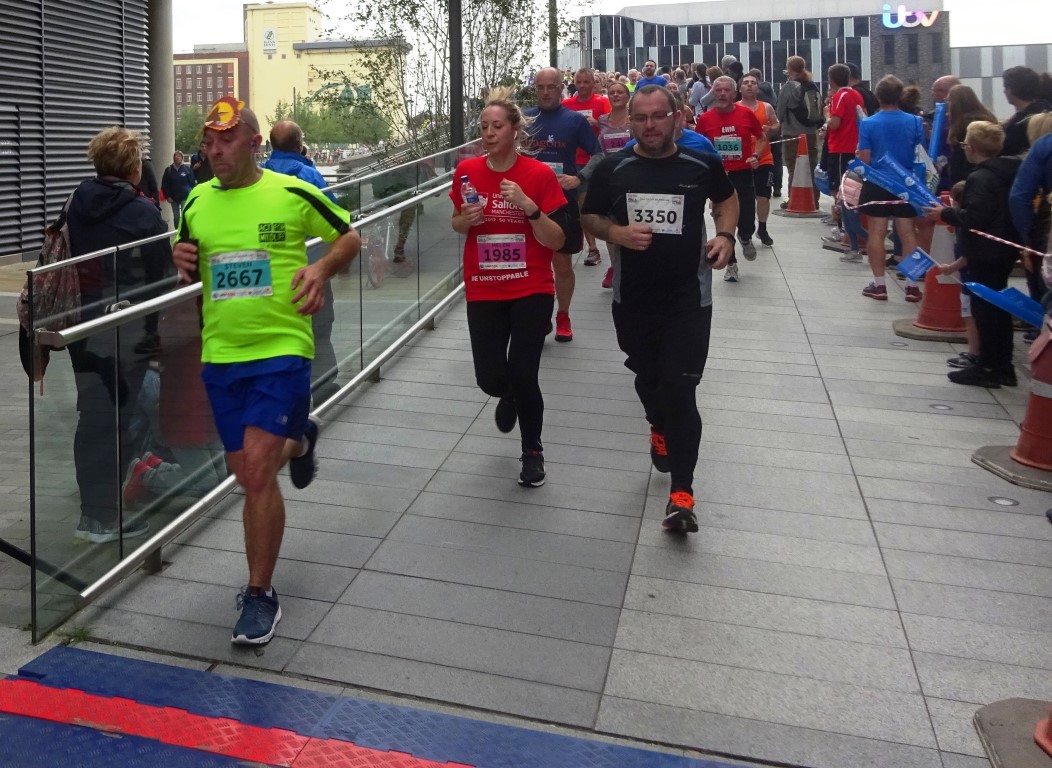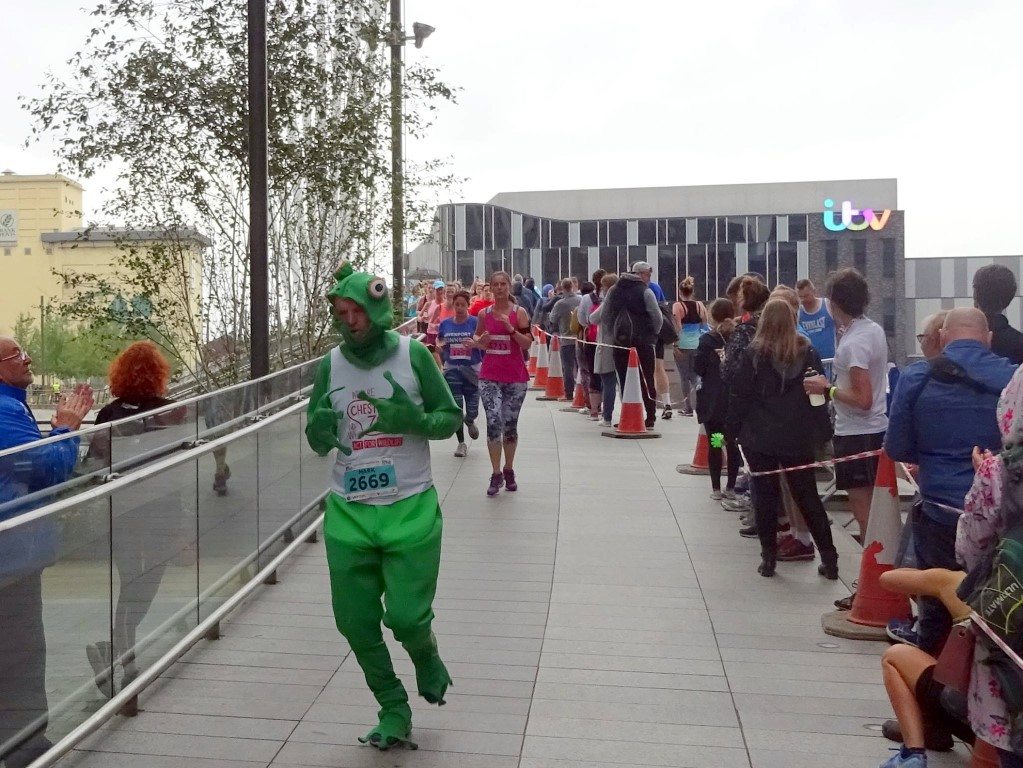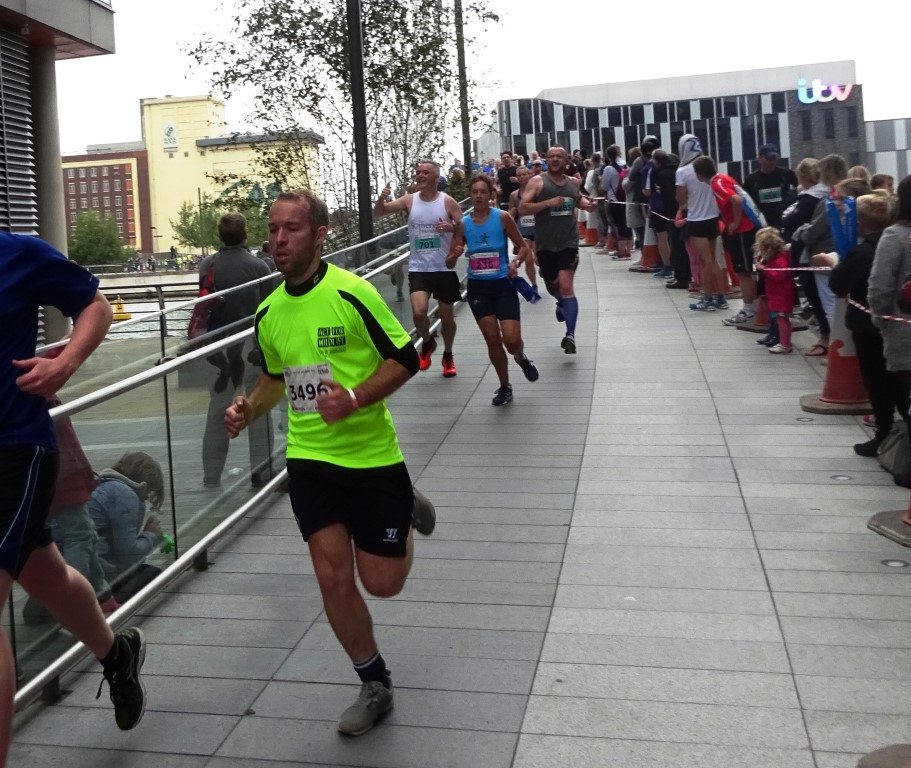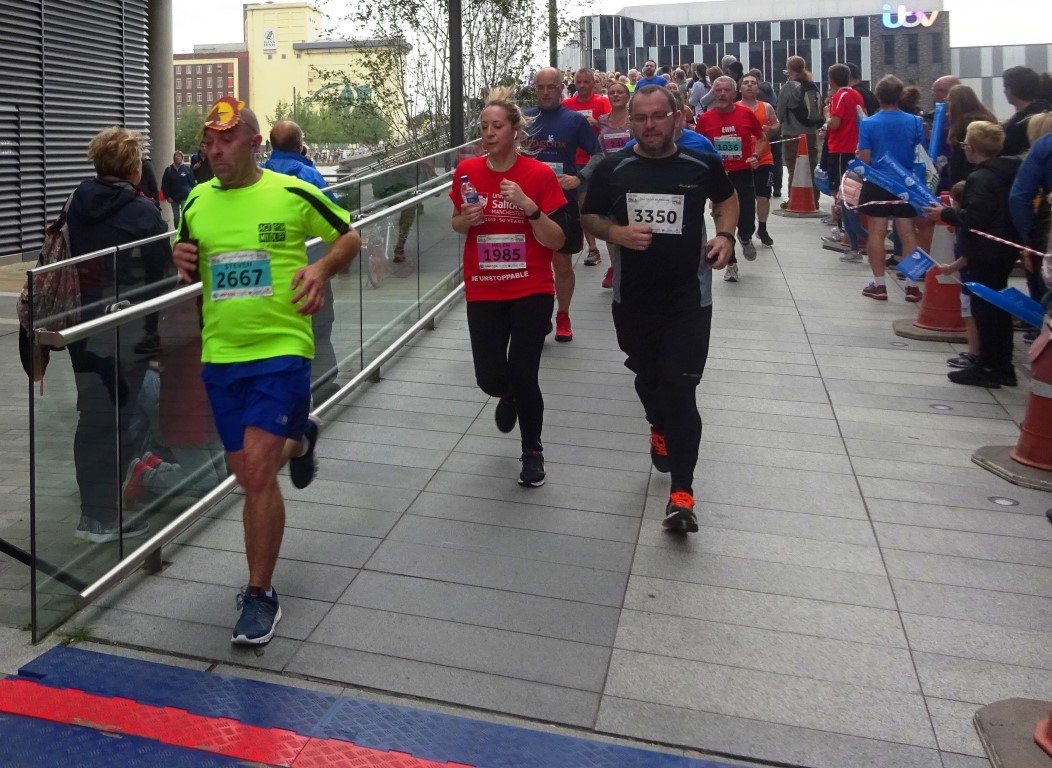Tag: Creating wildlife champions
522 individuals volunteering in 19 British and Irish Association of Zoos and Aquariums (BIAZA) collections took part in the research.
There are two internship options – a three month and 12 month placement – both of which involve working with different teams across the zoo on a voluntary basis carrying out research and . As part of their time here, the interns gain a better understanding of the role of a modern zoo, commercial aspects, interview skills, animal enrichment, plus a range of other topics! Many of the interns are studying a degree or masters and carry out the internship during their placement year, to support their degree.
Through supporting future generations to develop their knowledge and inspiring them to want to Act for Wildlife, not only are we supporting them to develop their studies, we’re working towards our mission of preventing extinction.
This week we’re saying ‘bye and good luck’ to our latest team of interns, as well as welcoming the next group. We managed to catch up with some of our research interns to tell us more about what they’ve been working on over the past 12 months and what they’ve taken from it.
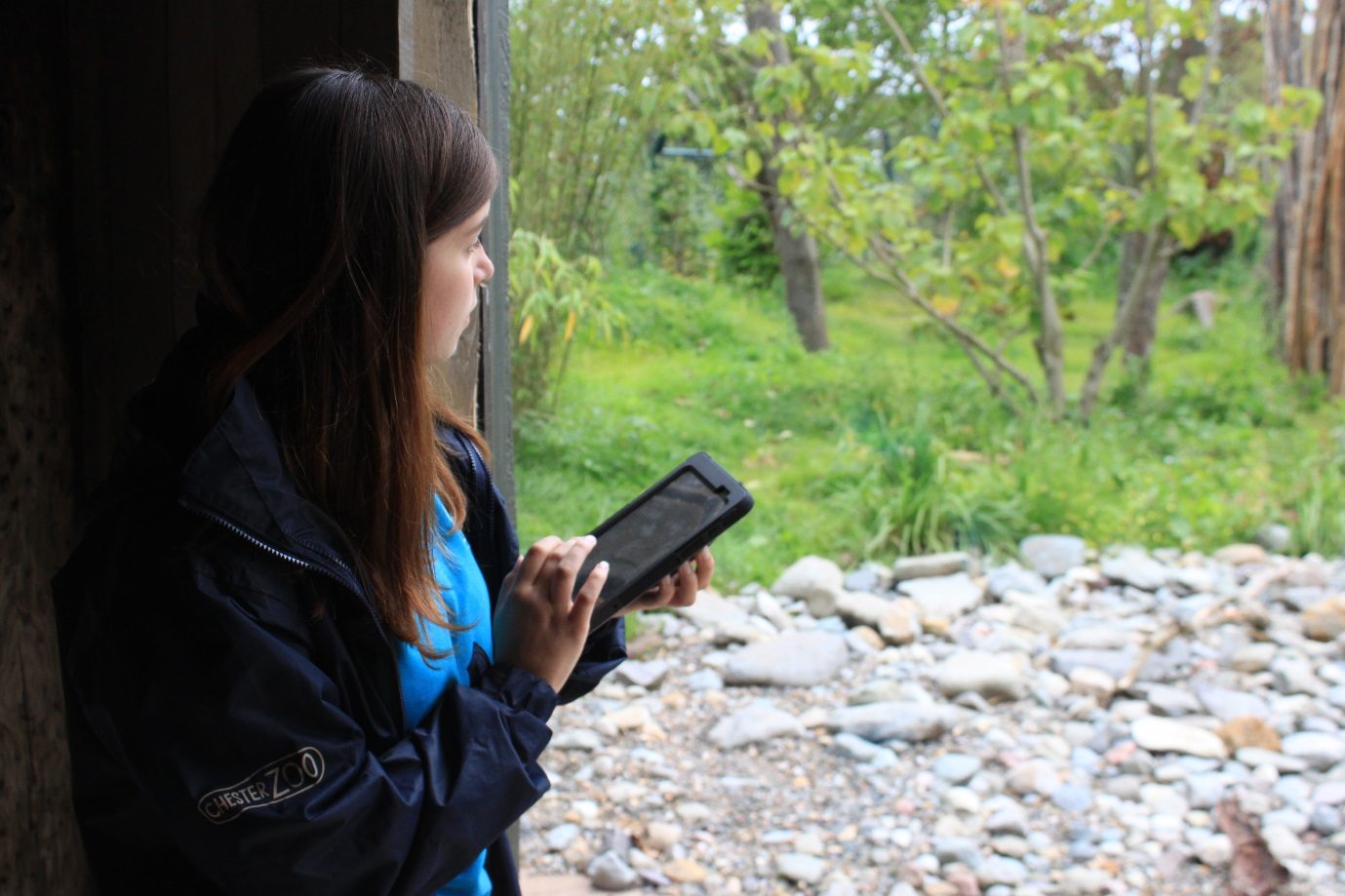
Behaviour and Welfare Intern
Lydia is a zoology student who has always had an interest in animal behaviour. When she saw the zoo advertising a Behaviour and Welfare Internship she knew she had to apply. Read more from Lydia Underwood, here >
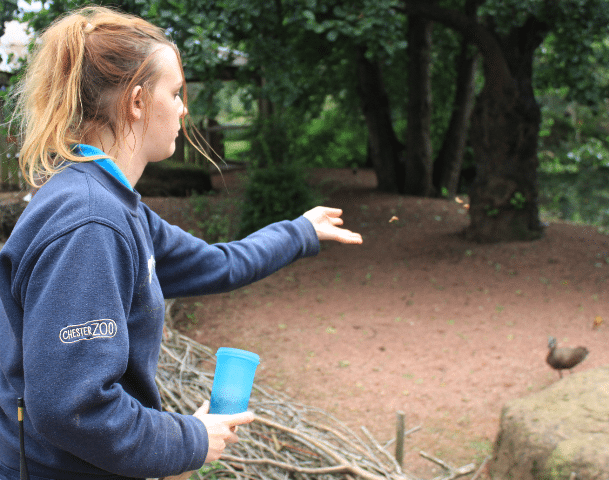
Bird Intern
Abbie had to do a one year placement as part of her degree and after doing an assignment at university that sparked her interest in birds, she decided to come to Chester Zoo to do her internship. Read more from Abbie Buxton, here >
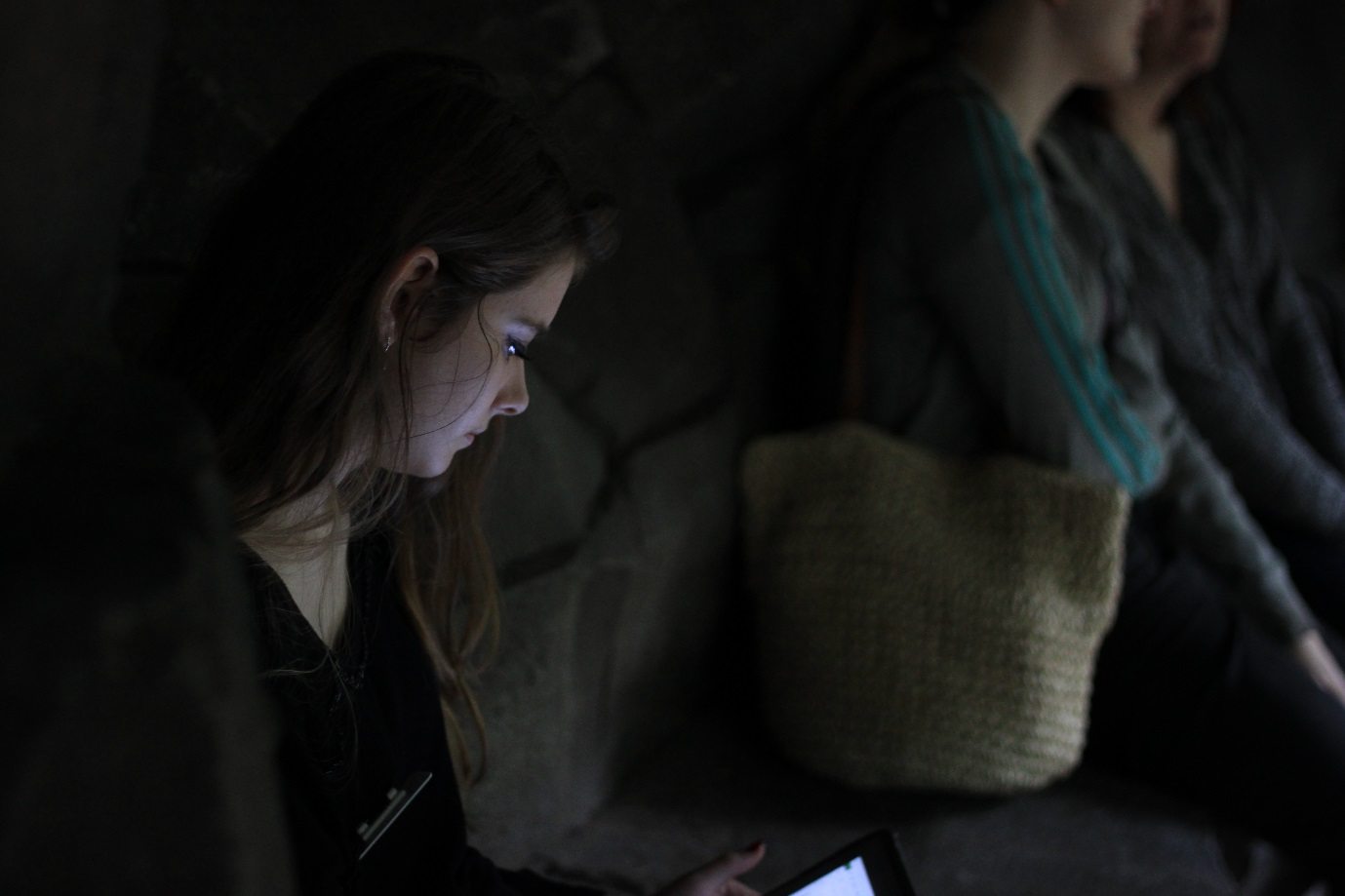
Visitor Engagement on Islands
Elinor is studying a Biology with Science and Society degree and is very interested in social science, she decided to come to Chester Zoo to do her placement year where she looked at visitor engagement in our Islands area. Read more from Elinor Bridges, here >
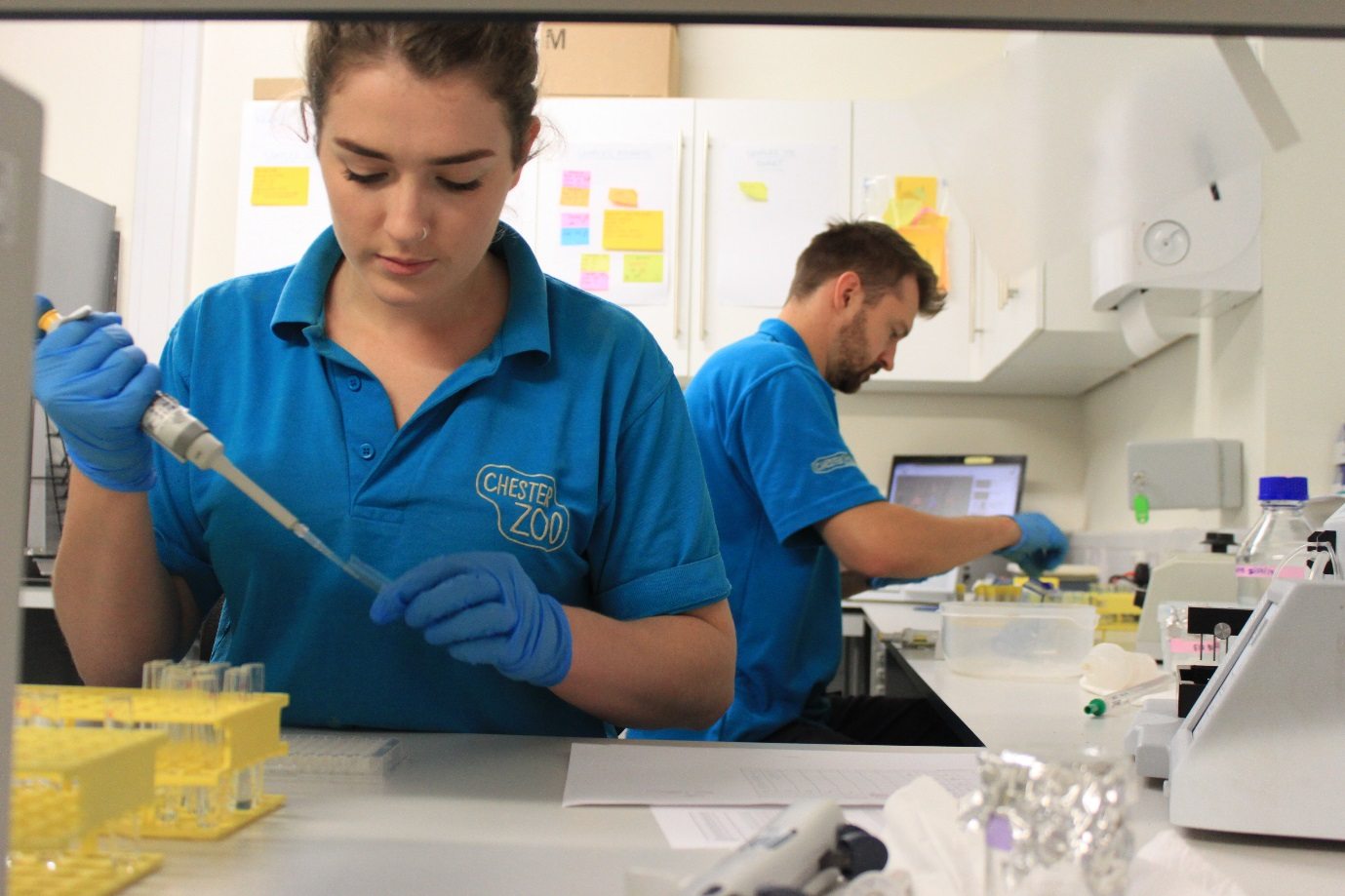
Endocrinology Intern
Alice is a Masters student who came to Chester Zoo to do her industrial placement year. During her degree she went on various scientific expeditions doing fieldwork but wanted to try something different and applied for a placement in our endocrinology lab. Read more from Alice Clark, here >
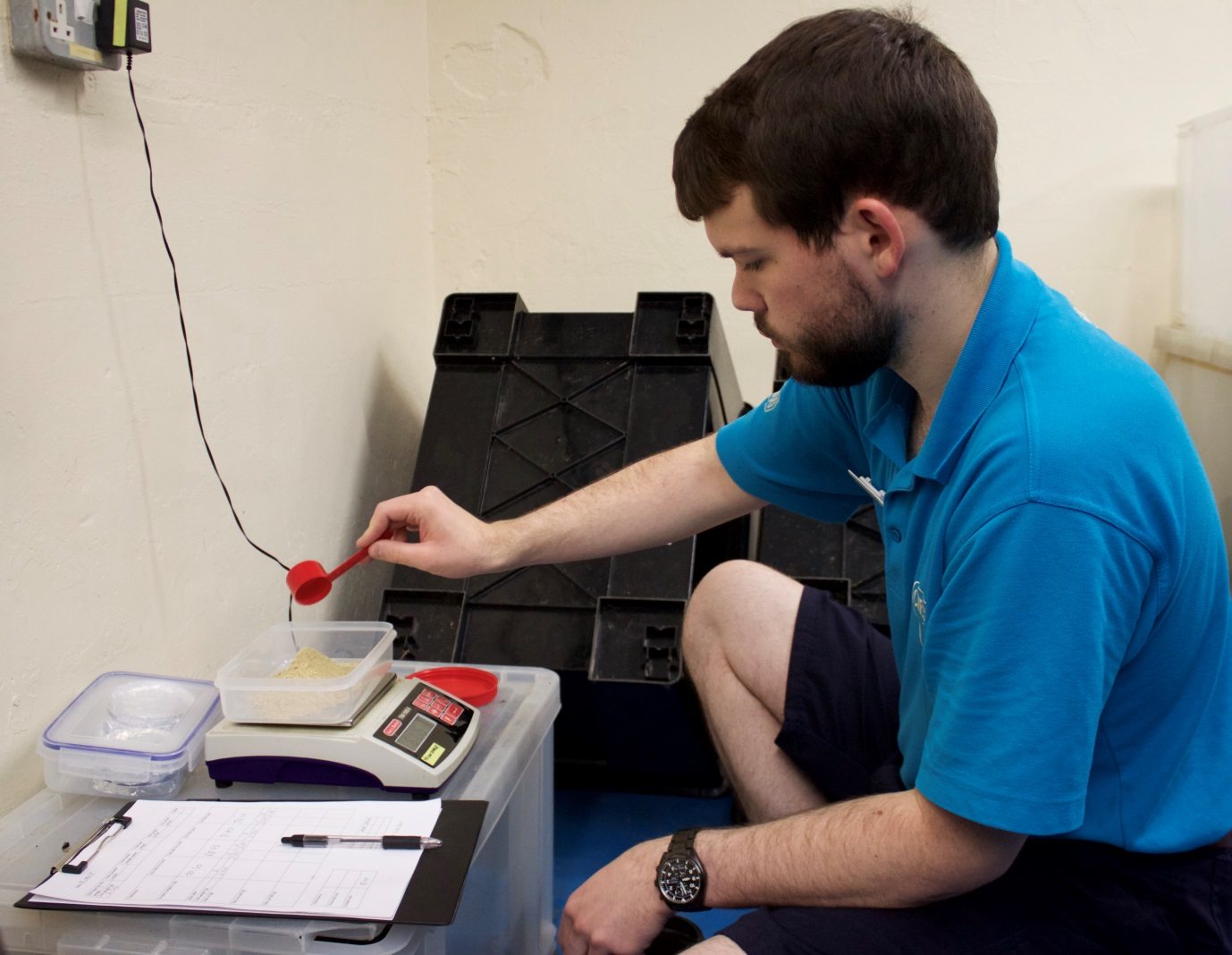
Nutrition Intern
Jasper is studying a degree in Zoology and was determined to learn something new during his placement year. Chester Zoo provided him with the opportunity to work on a topic he didn’t know much about: animal nutrition. Read more from Jasper Hughes, here >
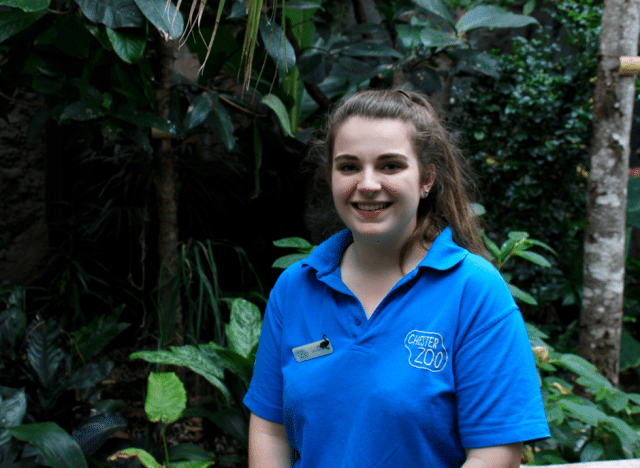
Bird Curatorial Intern
Jill is studying a degree in Wildlife Conservation and heard about Chester Zoo’s internships when she was really young and so was extremely happy to be selected as our Bird Curatorial Intern. Read more from Jill Vevers, here >
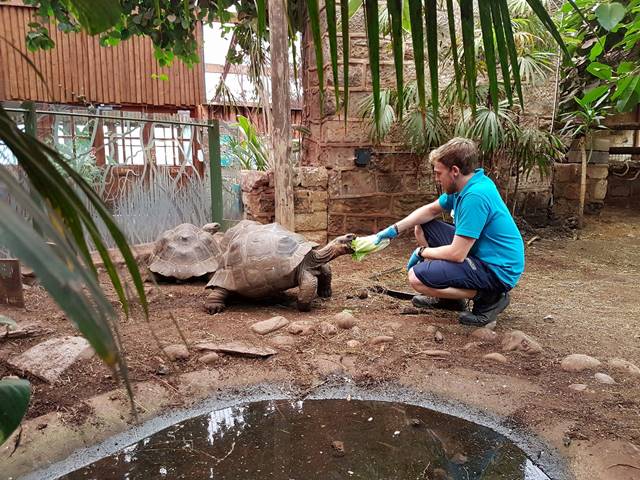
Reptile Intern
Jonathan is studying Biology and having done an internship on bushbabies prior to his placement year, he decided to apply for our primate internship. However, his passion for reptiles was noticed and he ended up being selected as our Reptile Intern instead. Read more from Jonathan Holman, here >
Zoo Rangers
Many of you will have spotted our fab team of Zoo Rangers carrying out animal talks and a whole host of other engaging and exciting activities within the zoo. They’re animal experts, so you can quiz them on any animal-related questions you have, they deliver our daily animal talks where they also share more information about the work our conservationists are carrying out in the field, and provide you with other ideas of how you can Act for Wildlife.
The team offer something extra and special for our zoo visitors – no matter what your age! Including Bug Club for 5-8 year olds, Junior Rangers Training camp for 8-12 year olds and our Nature Reserve Club for adults interested in surveying wildlife. You can also help feed some of the bird species at the zoo, feed our butterflies and get up close to some spikey stick insects with the Zoo Rangers. The team also organise a variety of special events throughout the year to celebrate World Animal Days, Members Days and enrichment days which involves looking at the methods we use to keep the animals fit and healthy (both physically and mentally).
Zoo Rangers can also be spotted at different locations around the zoo on their tricycle which is filled with incredible animal artefacts for you to get your hands on and discover more about our conservation and science work. The programme changes regularly so be sure to keep up to date with what’s on by heading over to our website.
Education Officers
Our Education Officers and Learning Assistants deliver workshops on a wide range of topics to a wide audience from all ages and abilities; from reception to university groups. They teach around 25,000 of the zoo’s 100,000 educational visitors each year. They specialise in biology and conservation but also link workshops to other areas of the curriculum. When the team aren’t teaching, they can be found in the office developing new workshops for the discovery programme and working with the Digital Learning Officer to help develop fun and engaging learning resources. Our team run workshops from KS1 to KS5 and provide help and fantastic conservation education wherever it’s needed. The whole zoo can be a classroom, and some of our workshops take place out and about in different locations around the zoo.
Safari Rangers
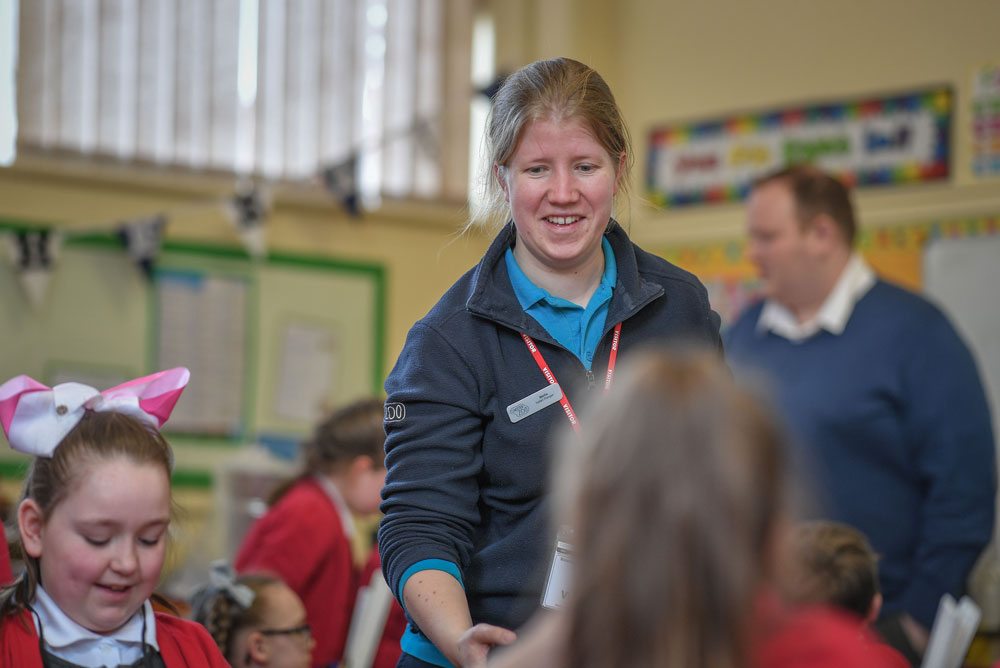
Our Safari Ranger team work with local schools and communities within the region on a daily basis, delivering free workshops on a number of different topics and themes linked to the curriculum to educate and inspire the next generation to protect nature. The team visit primary, secondary and special schools, further education and community groups for either one off workshops or repeat engagement project workshops. The team is always on the go in our Chester Zoo cars; which you may have spotted out and about!
Our Wildlife Connections project works with the public to encourage them to create safe spaces for local wildlife through developing habitats. Our project trains up individuals in how to identify and record wildlife, who then encourage their local communities to engage with wildlife too. Our outreach work doesn’t stop in the UK either! We’re working with our project partners around the world to support a range of educational activities – from interpretation to behaviour change campaigns.
Interpretation and Digital Learning
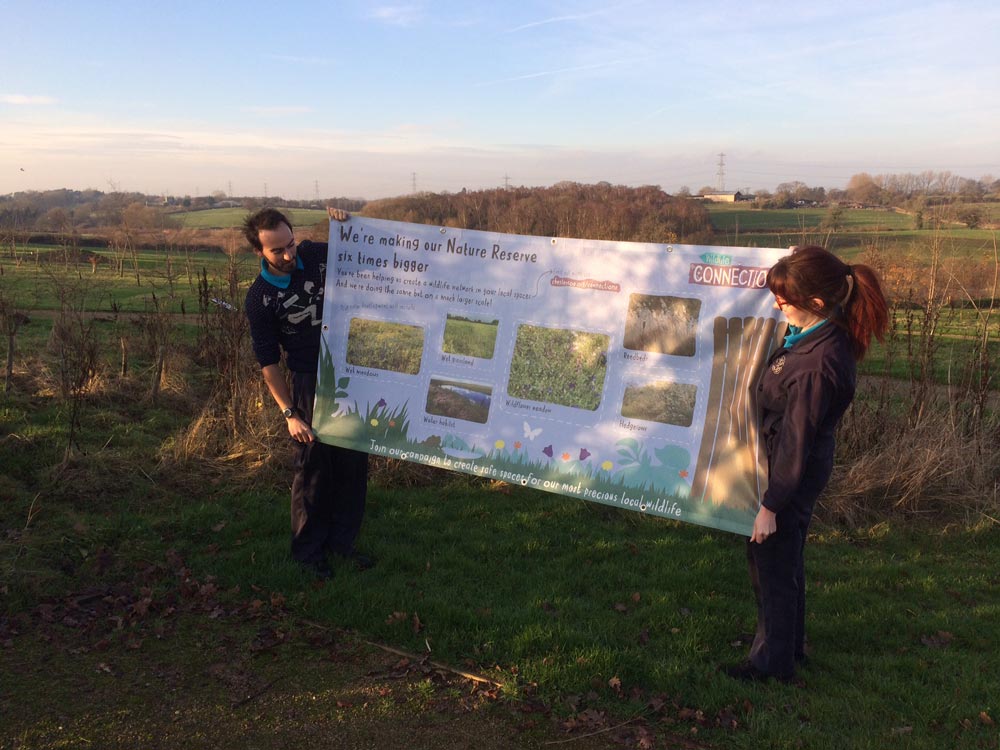
This team is responsible for creating all of the animal and plant signage you see across the zoo. They also look after the theming of areas such as Islands and painted dogs – designing inspiring environments for you. You might see them in the zoo with a screwdriver in hand! We also produce a lot of digital assets – from photography, film and audio – to develop an extensive bank of online learning resources that can assist schools with their visit to the zoo or lessons in the classroom.
Volunteers
As a charity, volunteers provide vital support to the life of the zoo. Our award-winning volunteers complement the work of our paid staff and contribute to our success by supporting the zoo’s education, scientific and conservation mission. Our volunteers provide thousands of hours between them to support our work. We have just over 200 volunteers who support us and play a crucial role in providing an all-round excellent visitor experience. Our volunteers are passionate people who are dedicated to engaging visitors in amazing educational experiences and helping us raise funds for our vital conservation work. Our volunteers are not only based across the zoo but also support our Safari Rangers, Zoo Rangers, Fundraising team, as well as our Education team helping to help support schools when they visit the zoo. We are proud to say that our volunteers have already given 10,000 hours of their time this year and we look forward to seeing what the rest of the year will bring! Read stories from some of our volunteers, here.
Keep an eye on our blog over the next few weeks as we’ll be highlighting the work of our learning team and the important role they play in protecting wildlife from extinction.
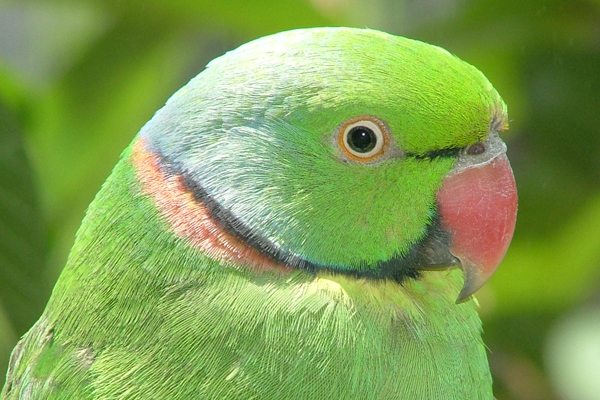
Support Act For Wildlife
By the time you’ve read this page, Earth will have lost an area of forest the size of eleven football pitches. That’s devastating for wildlife. It will probably cost a family of orangutans their home.
Mark
With a passion for animals from childhood, I was thrilled to join Chester Zoo as a bird keeper in 1988.
Now as Chief Executive Officer at the zoo, I continue to have a special interest in birds, particularly the Ecuador Amazon parrot.
I have taken on many fundraising challenges for the zoo over the years and I can’t wait to get my trainers on again at the Salford 10K!

Matt
As part of my role as bird keeper at the zoo I have worked in Indonesia to save songbirds from the illegal wildlife trade. Earlier this year I ran the Chester Half Marathon for wildlife and it’s great to take on another challenge.
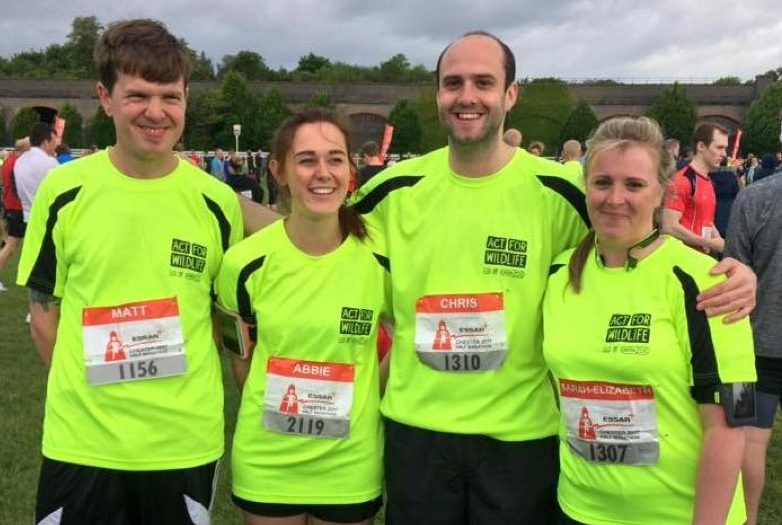
Steve
I work in the Aquarium at Chester Zoo. In addition to the conservation work we do here in Chester, I have recently seen first-hand the difference we make in places like Mexico. I’m really looking forward to running in my Act for Wildlife top.

Heather
I work in the HR team at Chester Zoo and I am new to running, so I’m nervous but excited about my very first 10K event.
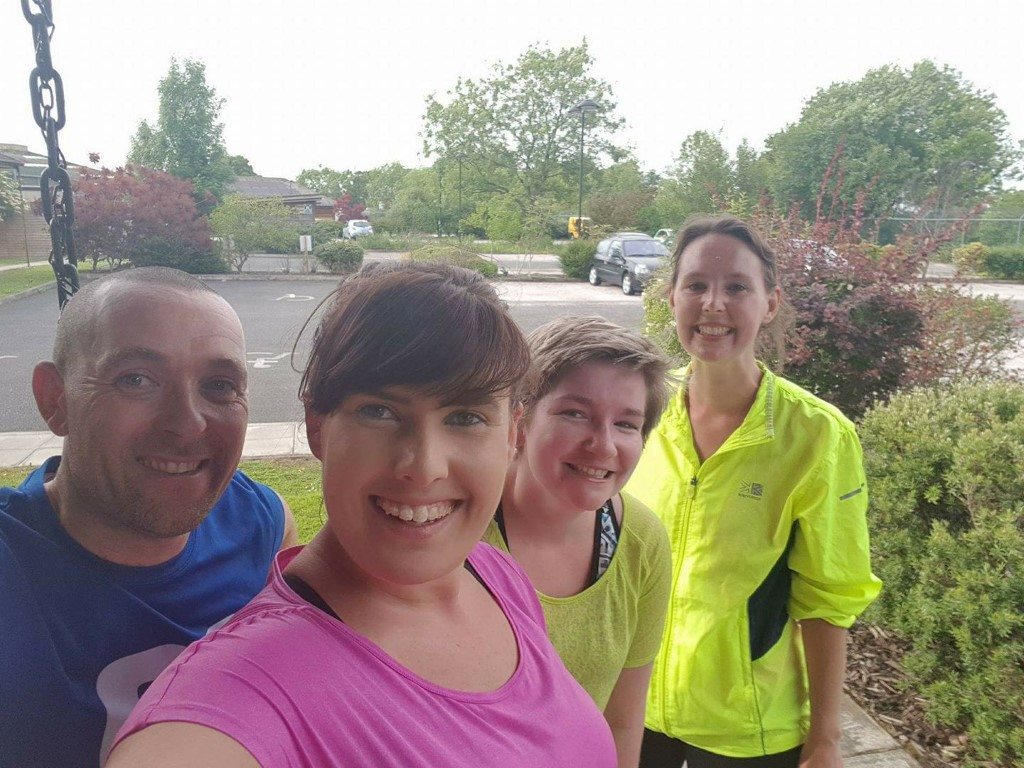
Alex
I am PR manager at the zoo and I’ve been trying to go running every day to train for the Salford 10K…it’s not always easy but definitely worth it!
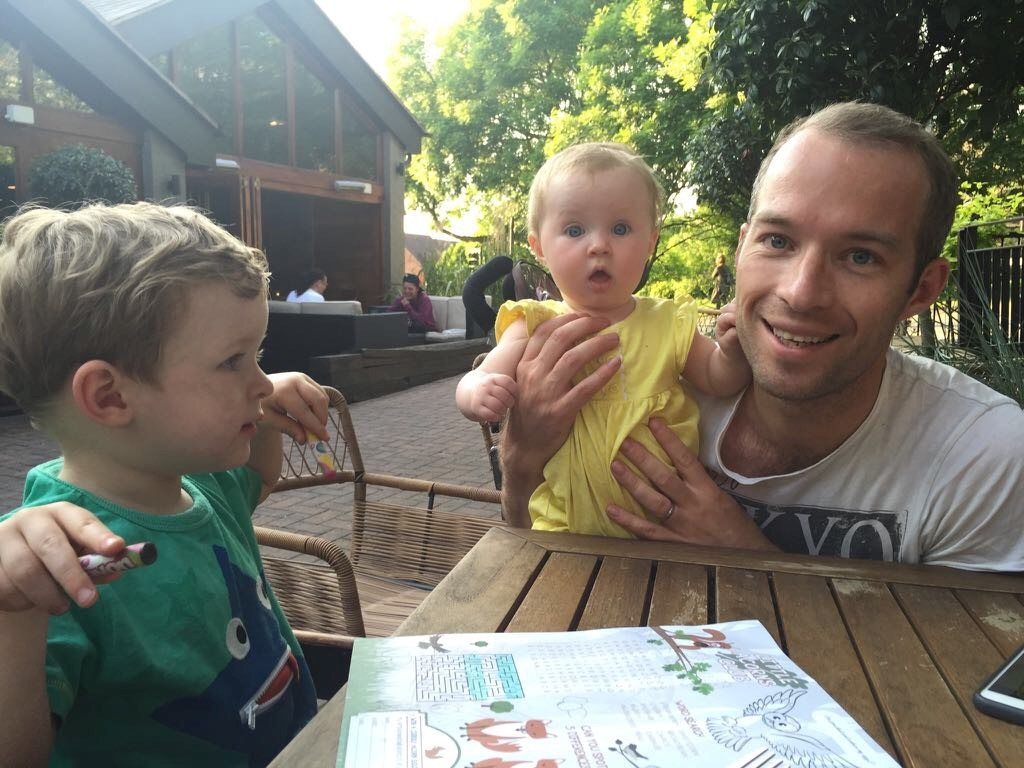
Lydia
I’ve worked at the zoo for many years and I am looking forward to running for wildlife. We’ve even set up a running club to help us with our training!
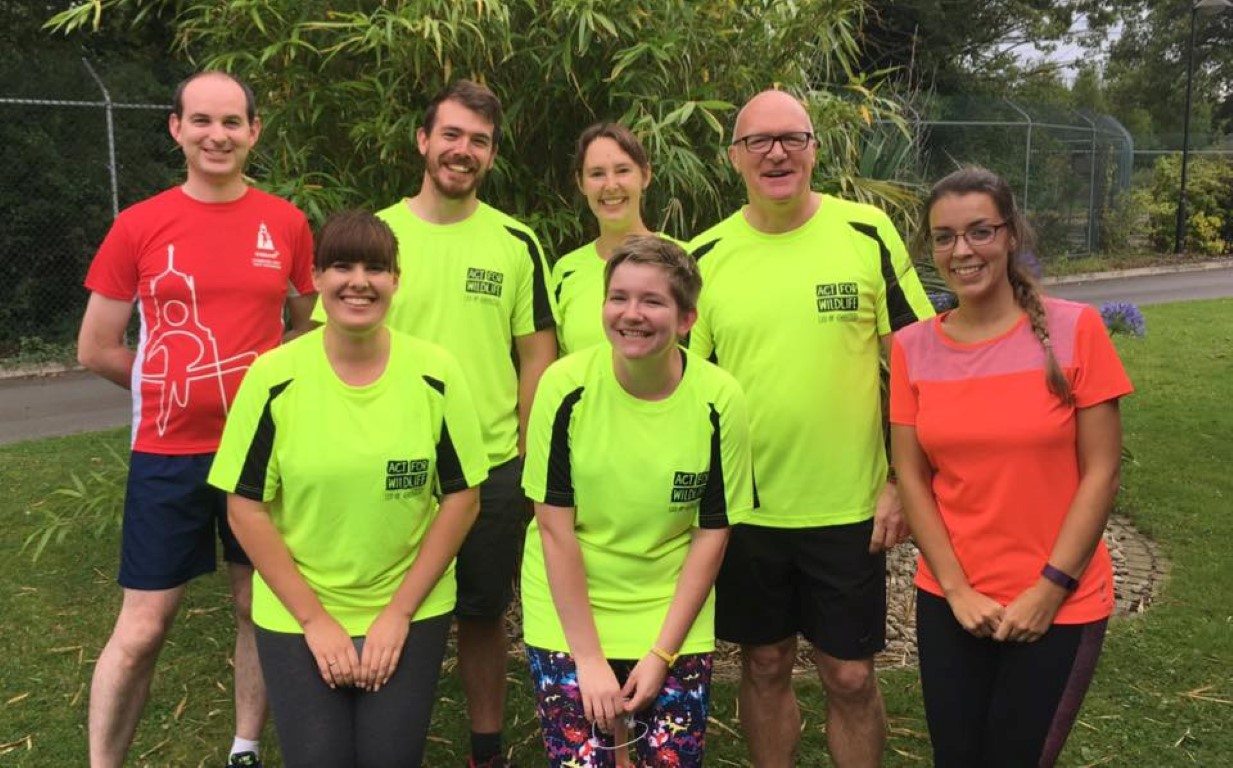
Hannah
As a fundraiser for Chester Zoo I have the great job of supporting others to take on challenges for wildlife conservation and I thought it was about time I got my trainers on to take on a challenge myself!
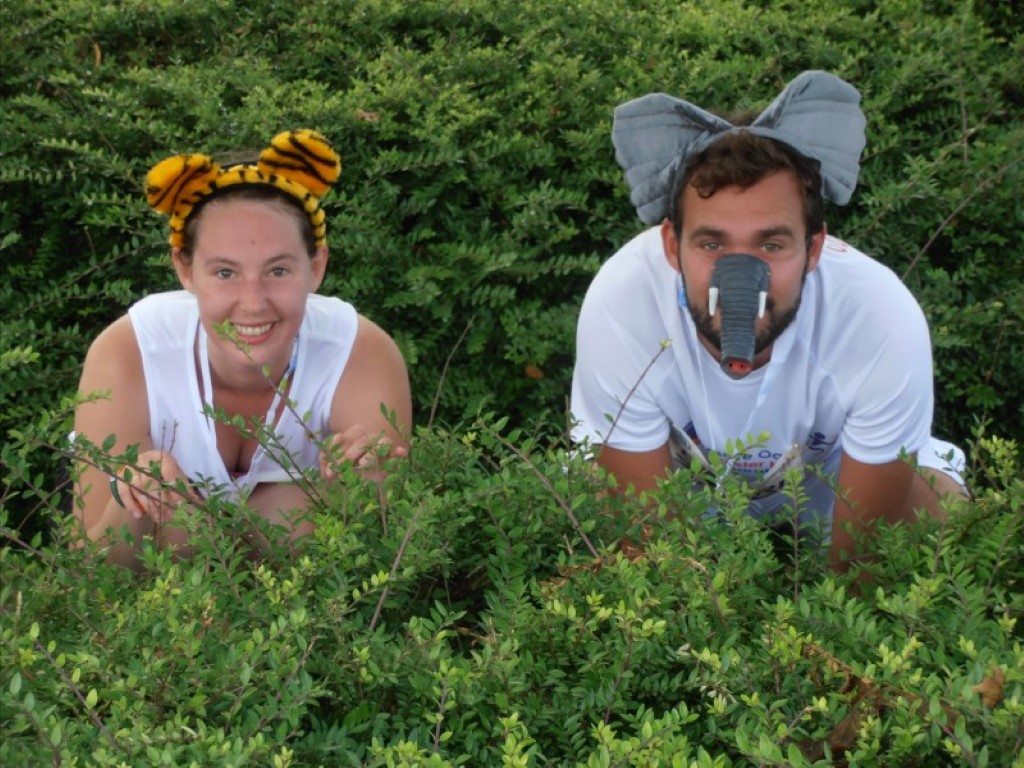
Update
They did it! The team smashed the Salford 10K, raising funds and awareness for wildlife conservation.
Well done team! Thank you everyone for your support.
Run by the Whitley Fund for Nature, the international prize honours exceptional conservationists working in grassroots conservation projects in developing countries. The applicants are currently being assessed by a panel of judges for the chance to win an award and a prize of £35,000 to support the project over one year. The Whitley Awards Ceremony will be presented by HRH The Princess Royal at the Royal Geographical Society in London on Thursday 18 May.
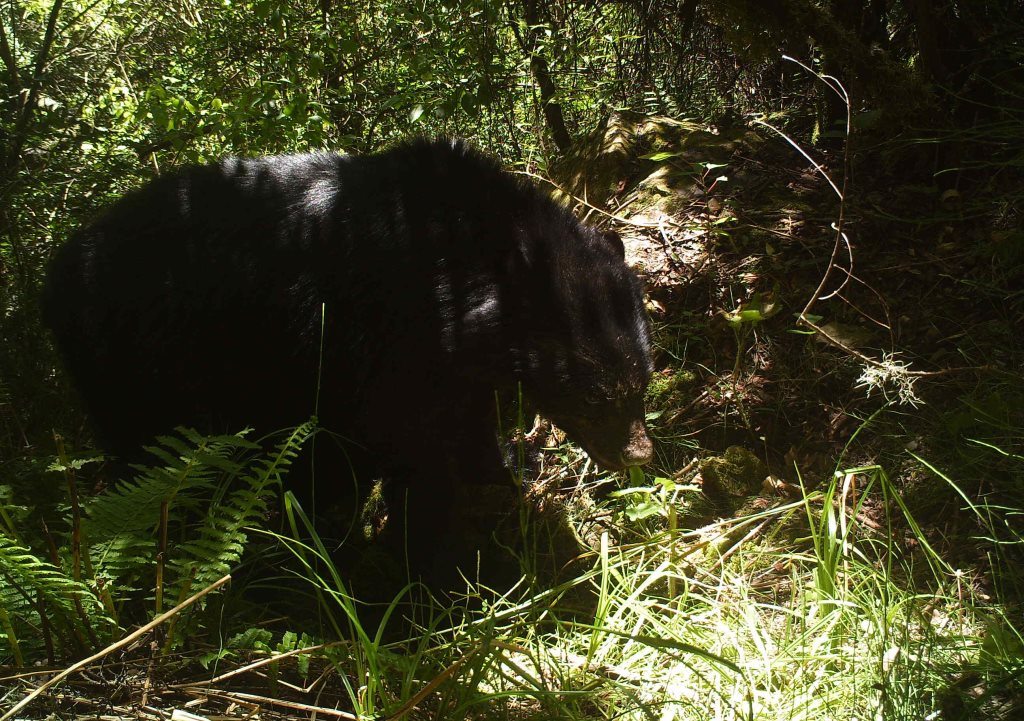
Previous winners include Chester Zoo project partners Arnaud Desbiez from the Giant Armadillo Conservation Project, Patricia Medici from the Lowland Tapir Conservation Initiative and Inza Koné from the Tanoé Forest project.
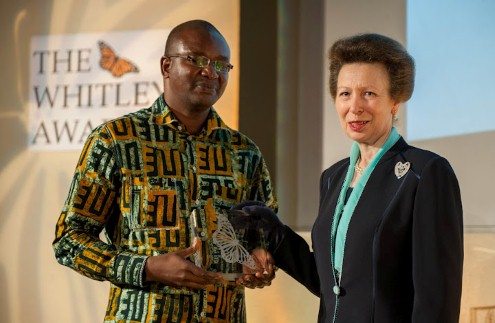
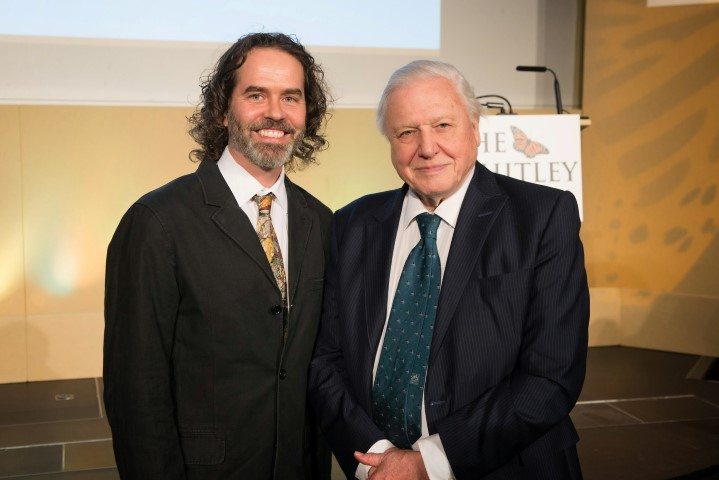
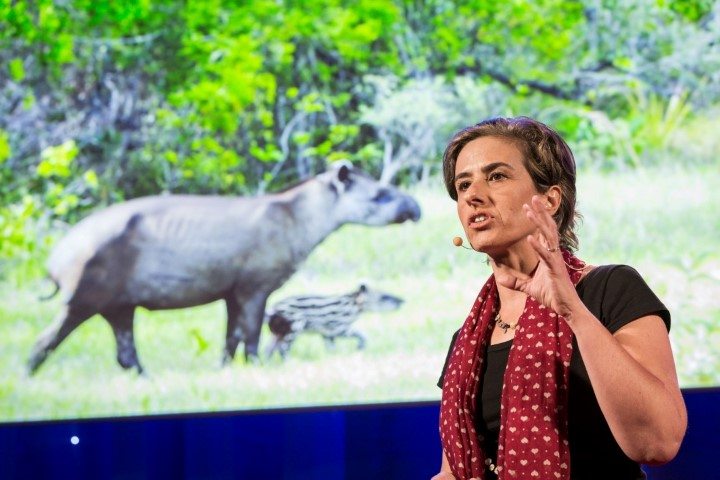
Chester Zoo’s recently launched Andean Bear joint project, run in partnership with WildCRU and Bolivian NGO Prometa, is among the finalists. Our conservation Fellow, Dr Ximena Velez-Liendo, is working towards understanding the level of human-bear conflicts while also monitoring the Andean bear (Tremarctos ornatus) presence and distribution in the Inter-Andean dry forests in Bolivia.
With severe droughts affecting the country’s agriculture production, people are shifting from agriculture to livestock-raising, which has led to an increase in encounters between local communities and bears.
Applying a cross disciplinary approach between both natural and social sciences, the project aims at developing practical interventions for immediate reduction in bear conflict, developing alternate livelihoods to local communities, and bringing positive change and monitoring the Andean bear populations.
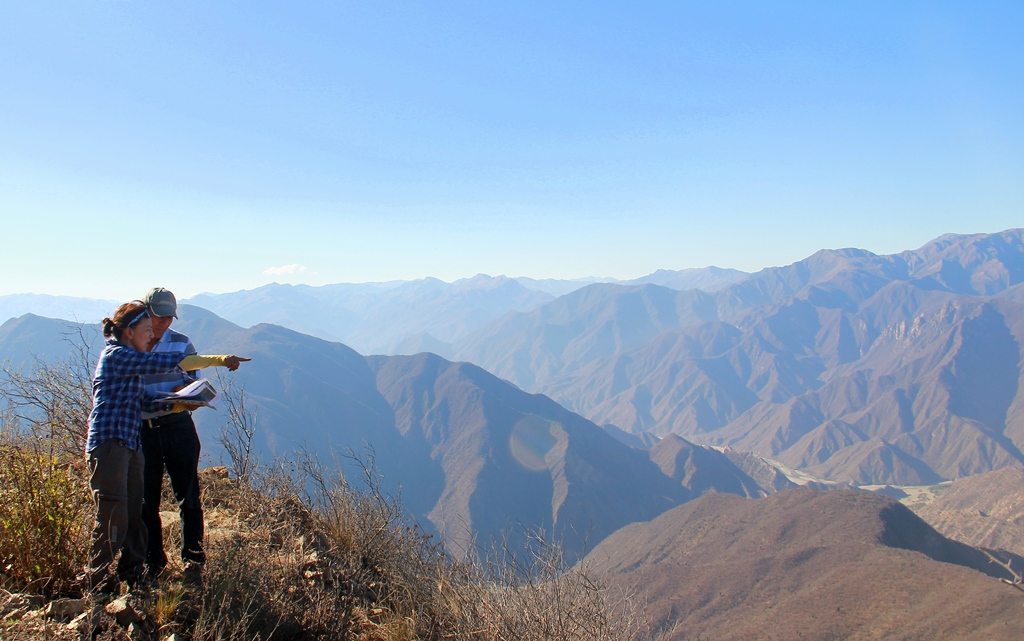
Indira Lacerna-Widmann, chief operating officer of the Katala Foundation, a Philippines-based organisation which successfully implemented the Philippine Cockatoo Conservation Programme (PCCP), is also among the prestigious finalists. Chester Zoo has been supporting the PCCP since 2003.
Restricted to lowland forest areas and mangroves, the Philippine Cockatoo (Cacatua haematuropygia) suffered a rapid decline in the last decade bringing the species to the brink of extinction. Employing former poachers as wardens, the foundation is playing a key role in conserving and restoring the most viable subpopulations of the endangered species and its habitat.
Working in five locations in Palawan, the Katala Foundation’s sites include a project in Iwahig Prison and Penal Farm (IPPF). The IPPF is surrounded by forest with high levels of biodiversity and the project is working with the staff and prisoners to monitor and protect the cockatoos and other wildlife.
Watch the below video from the Philippine Cockatoo Conservation Programme to find out more about the project and the work that’s going on to help protect this bird species:
Hannah Brooks, Chester Zoo’s Community Engagement Manager tells us more about how and why the school got involved:
“I visited the school back in January to tell the teachers all about the songbird crisis out in South East Asia which I witnessed first-hand during my visit to our field partner in Indonesia. I could tell that the teachers were shocked about the scale of the problem as they previously knew nothing about it and when we explained that their school could get involved and do something about it they were 100% on board.
“The school decided to transform their curriculum and developed songbird lessons that related to every subject to be delivered over six weeks.” – Hannah Brooks
“They also wanted to spread the message further and ran a campaigning afternoon where they visited other local schools and Cheshire Oaks to allow their students to share what they had learnt.
It’s amazing to see the students talking about songbirds and the threats they face, you can really tell that they’ve got a deep understanding of it and that they care passionately about taking action.”
And it doesn’t stop there, St Bernard’s want to inspire other schools and people in the community to get involved in the campaign and are hosting an exhibition of their work. There are loads of ways you can join in with our Sing for Songbirds campaign – whether you’re from a school or not.
The Nature Reserve first opened in 2013 and is located outside the boundary of the main zoo near the visitor entrance. It currently spans around 10,000 square metres of land, and contains an amphitheatre, a wildlife pond and a new woodland with 150 native trees. The site will grow to more than 50,000 square metres, creating and enhancing important fragile habitat.
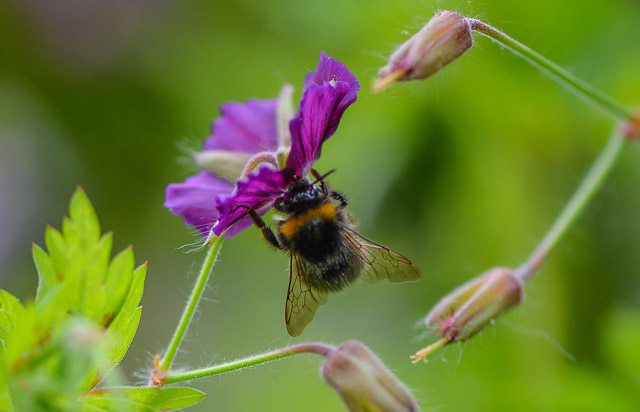
Surveys have shown that the site is already home to lots of British wildlife, from rare polecats and the sharply declining hedgehog, to a range of bee and butterfly species and the great crested newt. Birds including reed-bunting, grasshopper warbler and skylark are already known to nest in the area, and threatened harvest mice were introduced to the area by conservationists at the zoo in 2002 and 2003.
Sarah Bird, Chester Zoo biodiversity officer, said:
“We’re transforming land that has been used for agriculture into a more natural landscape that will feature wildflower meadows, ponds, beetle banks, trees and reedbeds. We will link into a strip of wetland along the canal, which is designated as a Local Wildlife Site for the animals and plants already present. We want to make a really great wildlife corridor allowing species to live at the reserve, and move through the landscape when they need to.
“We hope visitors will enjoy this oasis for UK wildlife when it opens in 2018. As well as helping threatened species, we want it to reconnect people with the natural world and inspire further conservation action.”
British wildlife is under threat, but it’s not too late to take action. We won’t stand back. Every one of us can make a difference.
The Chester Zoo Nature Reserve is being part funded by WREN through the FCC Community Action Fund via a Landfill Communities Funding agreement.
The zoo’s existing 10,000 square metre Nature Reserve will remain open to the public throughout the development of the expanded area.
Make Wildlife Connections
By creating connections from one wildlife-friendly space to the next we can create wildlife highways through our neighbourhoods and protect the precious wildlife that we love.

The below video highlights some of the activities our discovery and learning team are doing in the field, as well as the work we’re doing with schools right here in the UK to help raise awareness of the songbird crisis and how we can all help make a difference.
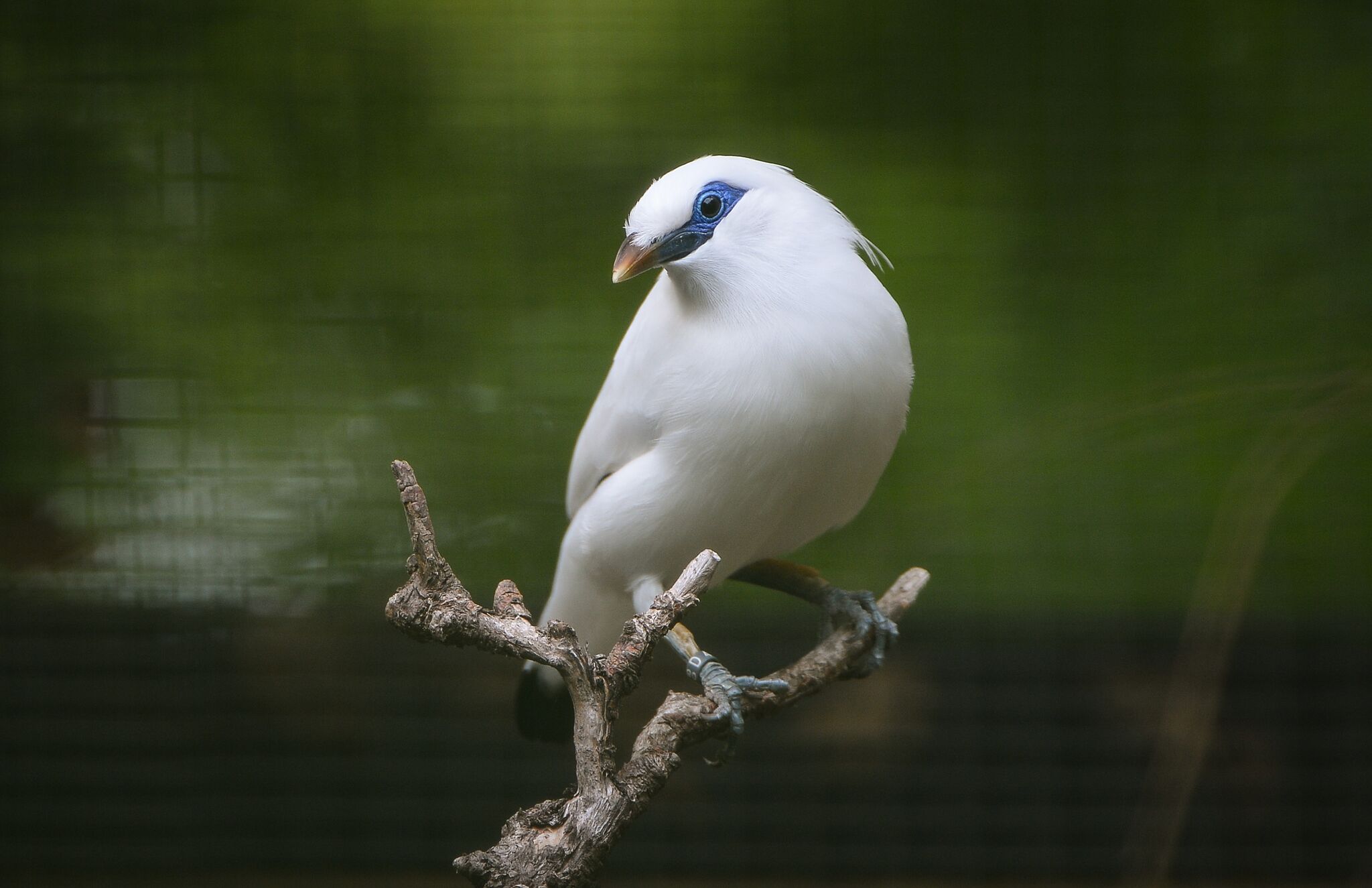
Donate to Indonesian Songbirds
Donate to our songbird project and 100% of your money will be used to help save songbirds in the wild.
Our safari ranger team work with local schools and communities within the region on a daily basis; delivering workshops on a number of different topics and themes linked to the curriculum to educate and inspire the next generation to protect nature.
Last year our learning team started the POW (Protecting Our Wildlife) project. A programme that focused on bringing pupils closer to the wonderful wildlife found right here in the UK and what they can do to help protect it.
Over 1,500 pupils in 63 classes at 14 different schools were involved in the POW project and were visited by our team. Below, Anya Moon one of our safari rangers, tells us more about the project and what they got up to:
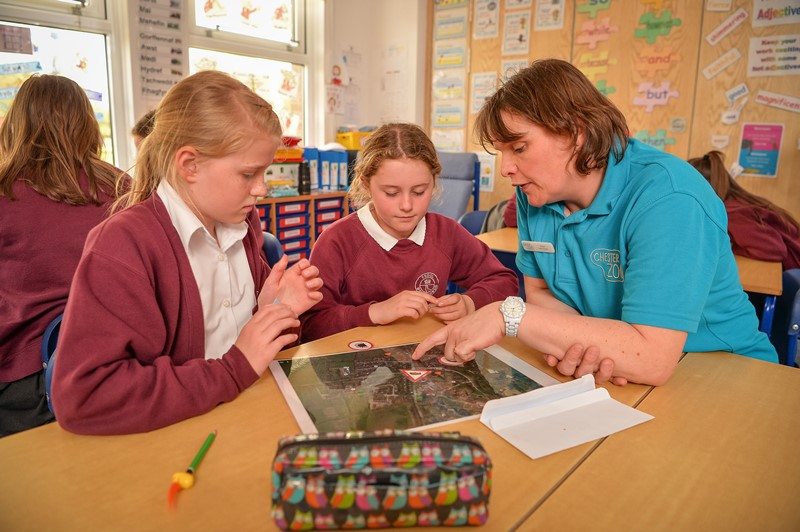
“The project was made up of five workshops that took place either in the classroom or at the zoo. The first two workshops were classroom based and provided the class with an introduction to UK wildlife, the different habitats, the different threats facing local species and providing more of an understanding on a variety of terms like native, non-invasive and invasive species.
“The third part was a visit to Chester Zoo, which were free and designed as a practical, standalone session. The fourth part was also a practical session, where we were supported by our fab Chester Zoo volunteers, back at the schools and involved a number of activities like wellie planting, bird watching and bug hotel building. These activities linked in with our Wildlife Connections campaign activities; benefitting local wildlife by creating safe spaces.
the visit to the zoo was excellent, but the children also enjoyed ‘getting their hands dirty’ planting their wellies! It’s hard to choose a best part!
“The children each produced a wooden pledge, making lovely displays in each of the schools and showcasing what they’d learnt over the workshops. The final workshop was quite different from previous workshops we’d delivered and involved choral speaking and a literacy element.
“The literacy activities were designed to link with the content of the workshops and use the material to create a poem. A drama practitioner was brought in, Emily Capstick, and using the literacy material she created an individual unique poem for each of the 63 classes.
“In most schools a celebration assembly was held where each class was able to perform their poem for the other classes and in some cases parents too; telling them all about the project, what they had learnt and perform the Wildlife Connections song.
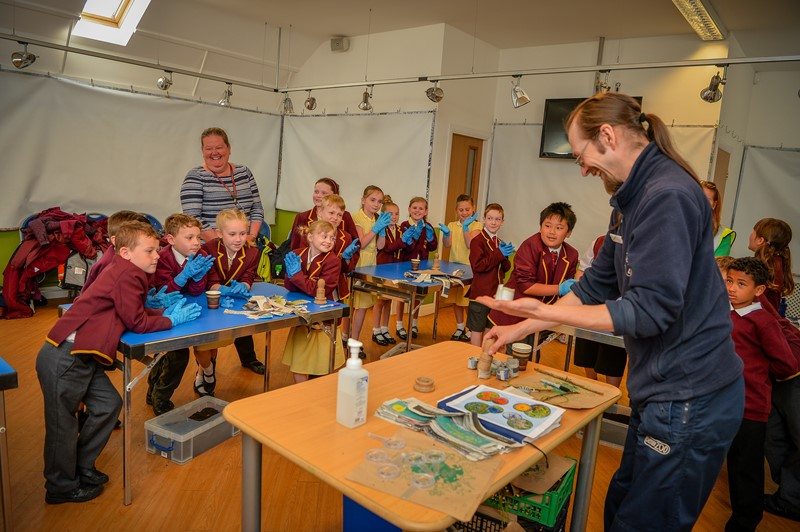
“The POW programme was great – it was lovely to see the same classes over a period of time and for the pupils to get to know us, and look forward to us visiting. On top of that it was also nice to work with volunteers and other colleagues when the schools visited the zoo.
“The safari ranger team are really looking forward to getting stuck into our next POW project which will be linked to our Sing for Songbirds campaign. On top of this we will continue to analyse the data collected from the programme and follow up evaluation with the schools that took part. Another exciting project we’re doing is adapting the POW project to work for after school groups too.”
Chester Zoo’s repeat engagement outreach work was evaluated by our conservation social scientist, Andy Moss. The findings from the pilot project have recently been published, showing that in-school educational programmes increased the conservation knowledge and attitude in students.
Research from the POW project (which is due to be published later this year) found a significant and positive change in people’s attitude to protecting UK wildlife, their ability to help wildlife and to zoos saving animals from extinction. From the teachers who responded to our survey, over 91% of them think that they have personally also learnt about native species conservation as a result of their engagement with the programme.
Saving the northern bald ibis from extinction
During the summer of 2016 we were delighted to breed seven bald ibis chicks. A critically endangered species, the northern bald ibis is part of a European breeding programme led by zoos. With an estimated 115 pairs of birds left in the wild the northern bald ibis is on the brink of extinction. This is the second breeding success for our bird keeping team. The first of the chicks bred here were released to the wild in February and the latest will be released early next year. We’re hoping that by introducing these birds to a protected site in Southern Spain we’ll take big step forward in reversing the decline of the species.
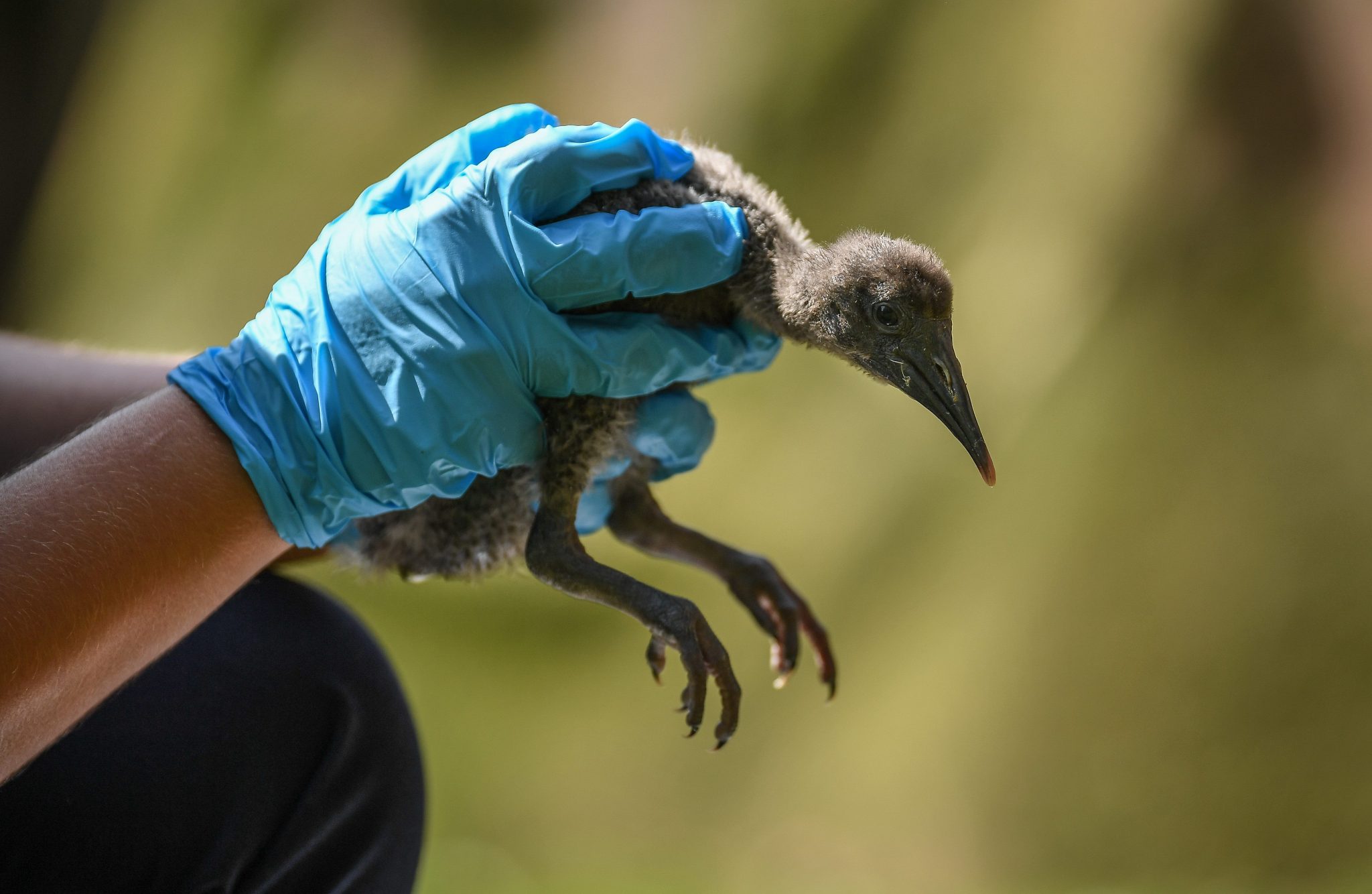
Saving turtles with your support
You’ll remember our recent appeal to help our partners at the Katala Foundation project in the Philippines after they confiscated over 3,500 live Palawan forest turtles. The future looked bleak for the turtles that had fallen victim to the illegal wildlife trade and were destined to be sold in China. We’re delighted to report that thanks to your support and the hard work of the team working on the ground at the Katala Foundation, 89% of the turtles were saved and have now been reintroduced in to the wild. Thank you!
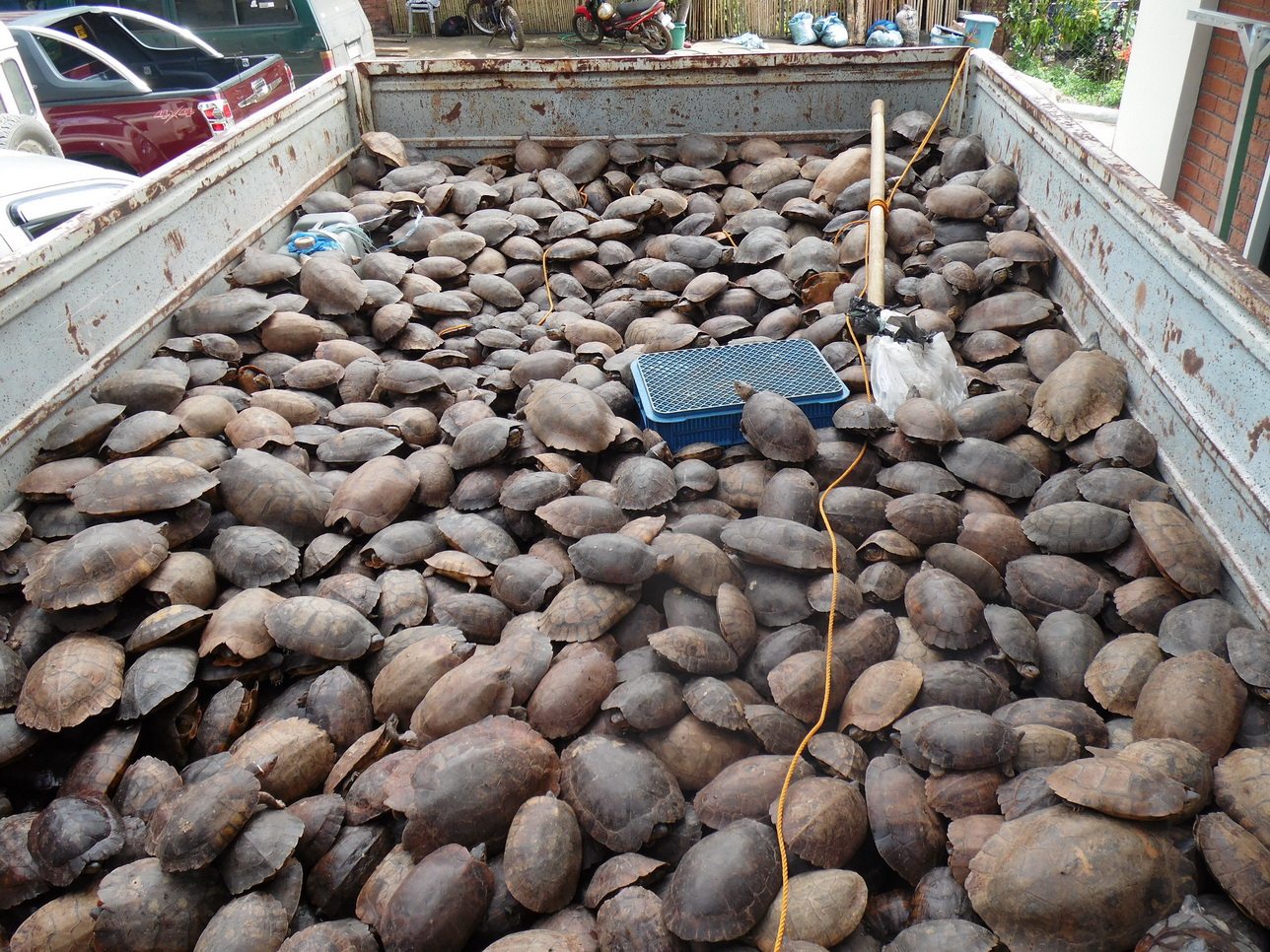
Proud of our volunteers making Wildlife Connections
All year we’ve been focused on giving people across the UK the skills that they need to deliver real conservation in their own back yards. We’ve trained 57 wildlife champions to go out, create wildlife friendly habitats and to train their local community to do the same. Plus, we’ve had hundreds more people sign up and download our ‘how-to’ guides to create their own Wildlife Connections. It’s not too late to sign up for a ‘UK wildlife friendly’ start to 2017. Why not make it your New Year’s resolution?
We Will Never Forget
This year we launched our ‘We Will Never Forget’ campaign to raise funds to support research in to the deadly EEHV virus which threatens young elephants in zoos and all over the world. For us, this was personal after we lost elephants to the virus. We’ve been overwhelmed by your support; to date we’ve raised £100,000 which has funded a post-doc research position dedicated to finding a cure the virus. Please help us to keep this vital research going and enable us to carry out more research in the wild by making a donation.
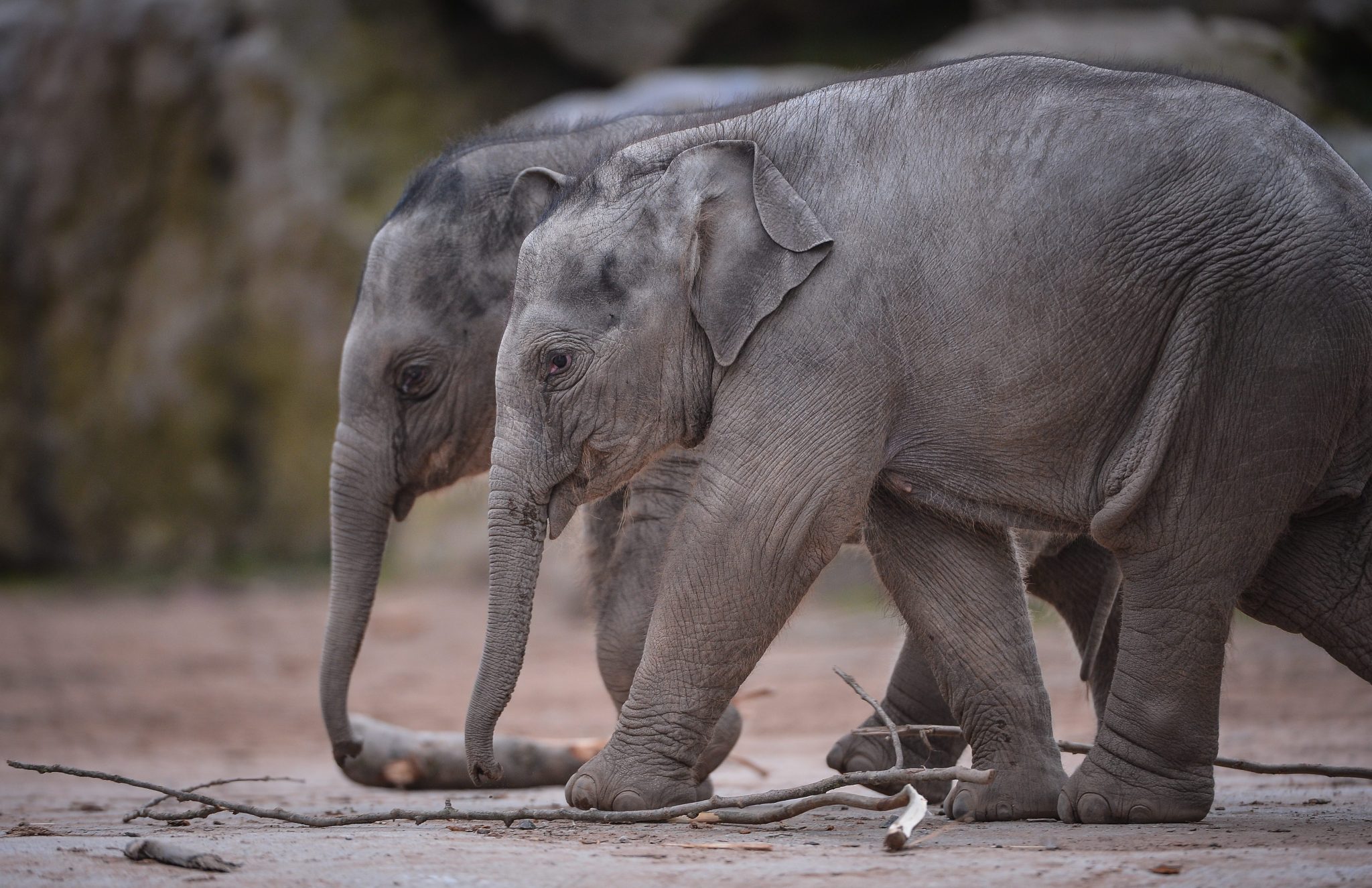
Supporting the next generation
We’re really proud to be helping to train the next generation of conservation scientists. We’re currently supporting 17 Chester Zoo Conservation Scholars from nine institutions, who are working on a range of species and topics in the zoo and out in the wild. This year, Conservation Scholar Ee Phin Wong completed her PhD research and has now gained a post-doctoral position. We’re really looking forward to working with more scholars in 2017.
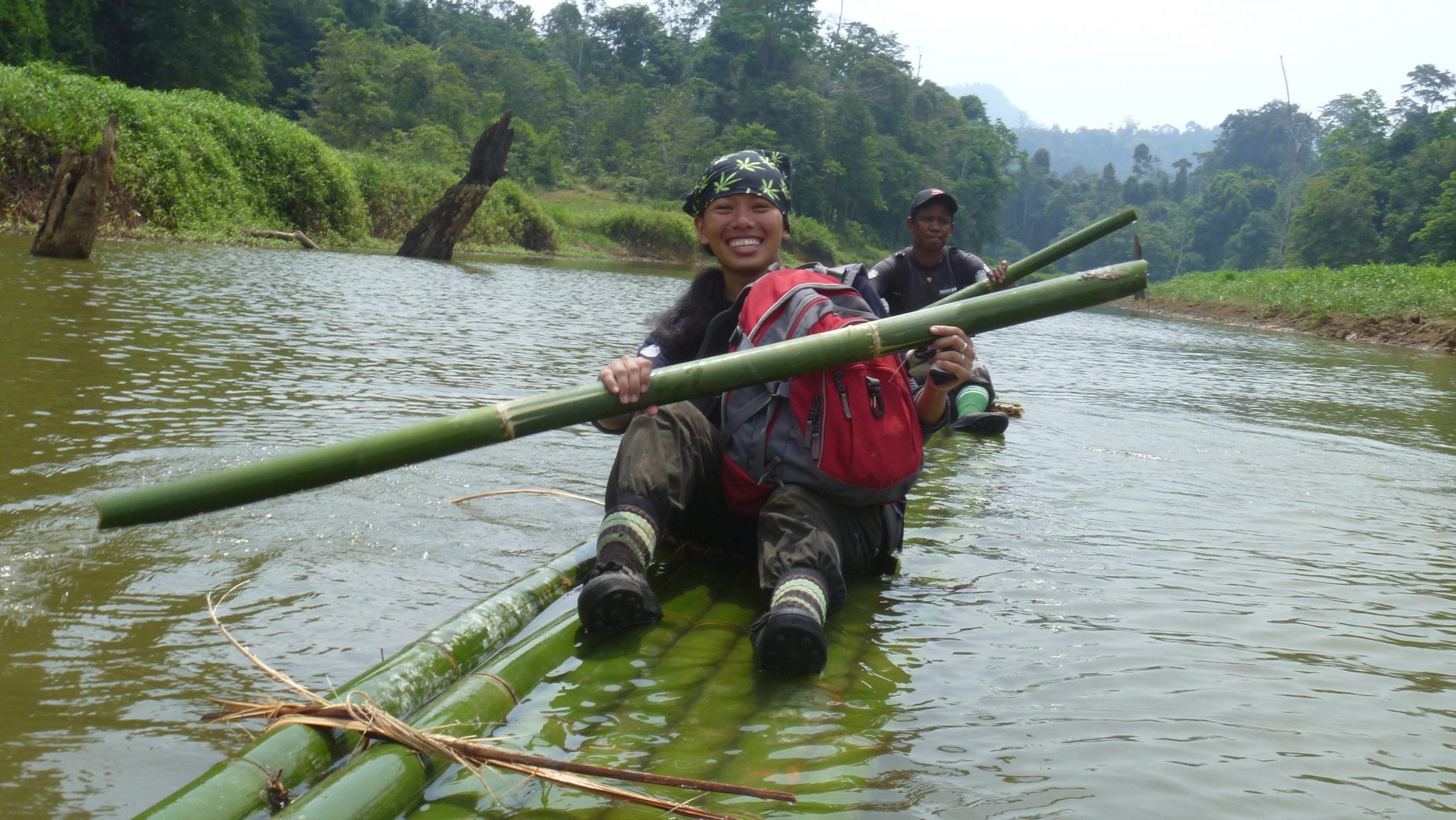
Find out more about how our community of committed experts and enthusiasts are making a real difference to conservation by signing up for our e-newsletter or following us on social media.

